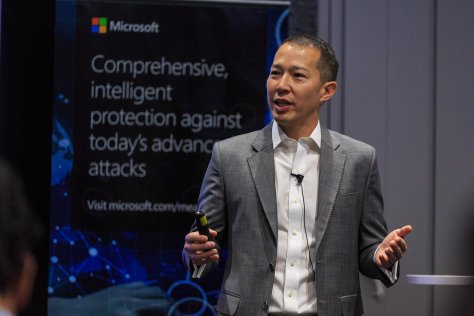Data breaches are daily occurrence in the region and regulatory requirements for protecting data are increasing. It’s no longer an option for businesses across the Middle East and Africa to build secure solutions that deliver value and protect customer data. It’s an imperative, according to Microsoft.

Through series of interactive sessions Microsoft discussed the security environment that companies are operating in and how enterprises, governments and people across the region should think about securing data. The cloud is becoming a security imperative as it addresses the most rigorous security and privacy demands of our customers.
At the event, Mike Yeh, associate general counsel, Microsoft, MEA, spoke about the increasingly complex world that companies are operating in, and that businesses will only adopt technology that they trust. The Microsoft cloud has the deepest and most comprehensive compliance coverage in the industry. He also outlined the role of the Microsoft Digital Crimes Unit, the Cyber Threat intelligence Programme, and Microsoft’s approach to customer data privacy.
Cyril Voisin, Microsoft EMEA’s chief security advisor, also described in detail the challenges facing organisations – large and small – today. With the movement of devices and services outside the firewall, there is more data, fewer boundaries, and more complexity than ever before. He then discussed how Microsoft is working on this, using the Microsoft Intelligent Security Graph, which uses AI and machine learning to analyse and stop threats. Currently, Microsoft helps with cyber security for more than 90 percent of the Fortune 500, analyses more than 400 billion emails, and scans 1,2 billion devices. Cloud is now a security imperative, with security built in from the ground up.
The session was closed by guest speaker David Weston, Microsoft’s ‘hacker-in-chief’ that leads the global Windows Red Team. When Microsoft’s senior leadership wants to know where their security defences may be vulnerable or weak, they turn to David Weston.
Weston also discussed the role of the Red Team, that has been conducting penetration testing, threat intelligence, platform mitigation design, and offensive security research since Windows 7. The group regularly challenges each other by creating mock security threats (from the Red Team), while a Blue Team detects and responds to the cyberthreats.
Together with its customers, Microsoft is turning the tide in the cyber war.





